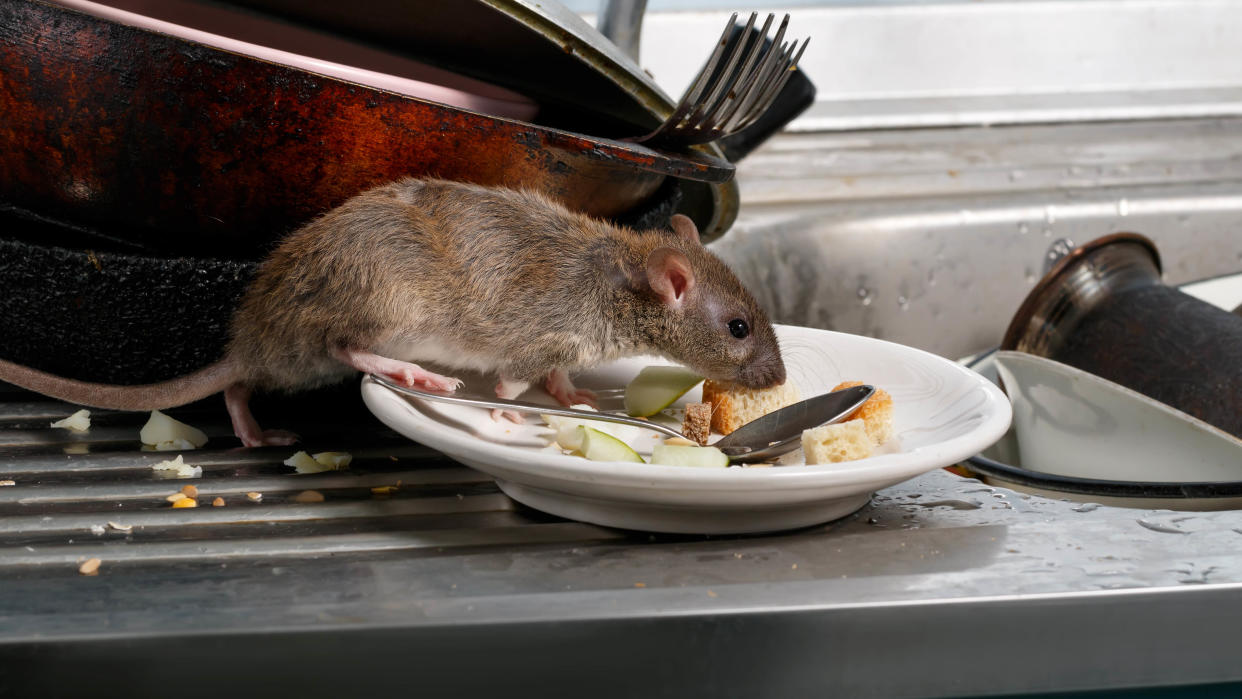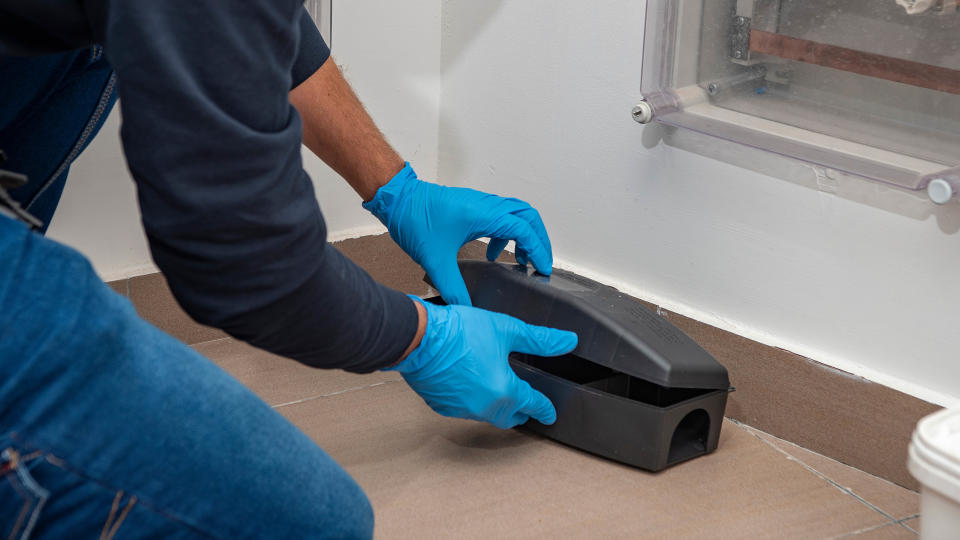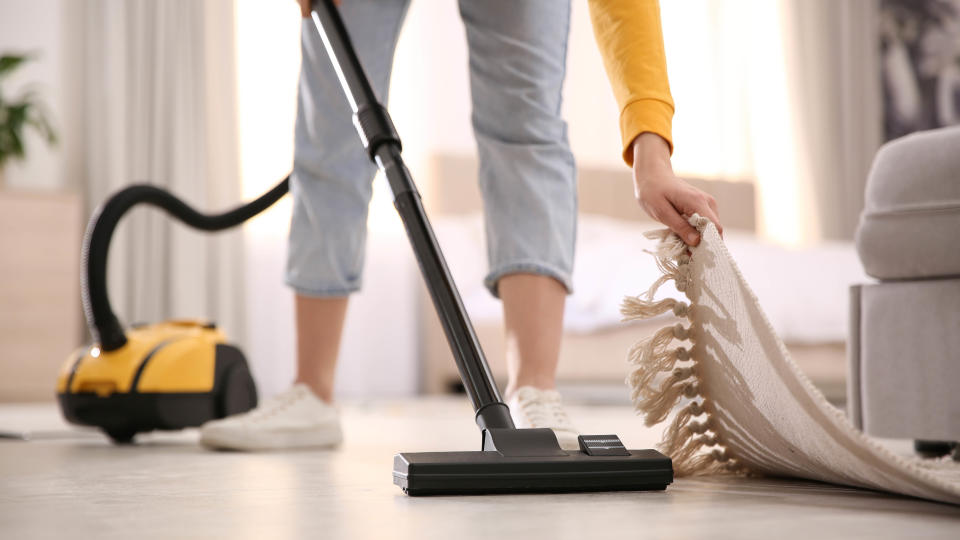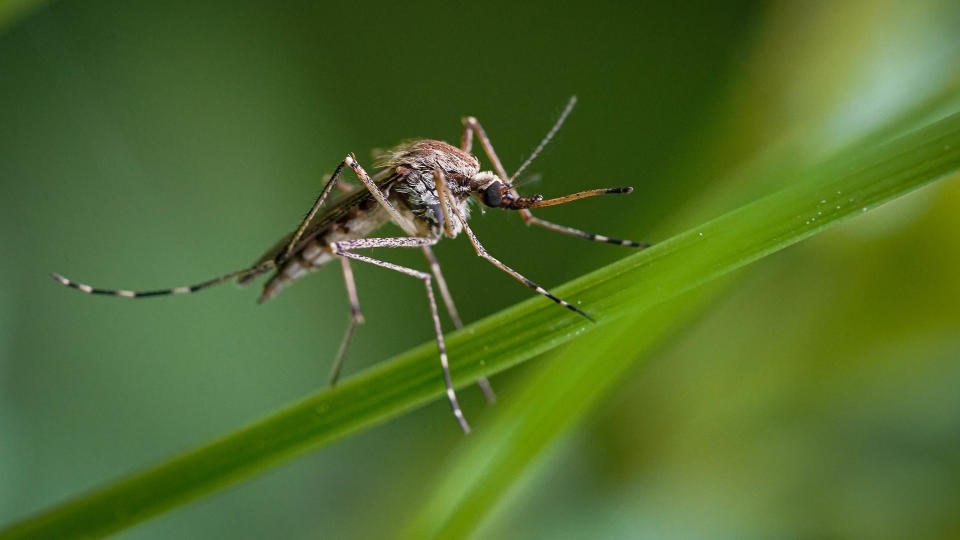5 things not to do when repelling pests, according to experts

It’s always a nuisance when you spot pests in and around your home. Whether you’re trying to get rid of mice, roaches, or even ants, it’s important to tackle the issue immediately to avoid an infestation, and potential damage to your home.
And while there are plenty of different methods online on how to repel pests, not all of them are effective. In fact, there are some widely-believed myths that pest control experts want you to steer clear of. Not only are these common misconceptions unrealistic, but could make the pest problem worse.
Luckily, we have a pest control specialist at hand to shed light on some of these common myths. So before you set your traps, or buy the necessary items, here are five things not to do when repelling pests.
You’ll also need to know the things that are attracting pests to your home to prevent an invasion
1. Don’t use cheese as bait for rodents

Despite the cartoon imagery, mice and rats are not naturally attracted to cheese. In fact, such rodents actually prefer high-calorie sweets, protein and fatty foods.
“Contrary to popular belief, rats and mice are not inherently drawn to cheese,” says Sophie Thorogood, pest prevention specialist at Pelsis Group. “Both are opportunistic feeders and are more likely to be attracted to foods with high sugar or protein content, such as grains or peanut butter. To effectively catch these pests, it's better to bait traps with foods that align with their dietary preferences.” Peanut butter or hazelnut spread contains a good mix of high fat and sugar — so this is ideal to lure them in.
In any case, you wouldn’t want to waste your good quality cheese on unwanted pests!
2. Don't use conkers to repel spiders

While there has been much debate about whether horse chestnuts (conkers) keep spiders away, this is nothing more than an old wives’ tale. “It is a common myth that conkers contain a noxious chemical that repels spiders, however, there is absolutely no scientific proof to back up this claim, “states Thorogood. “There could be some confusion here with certain substances that do repel spiders, such as spritz white vinegar (half water, half vinegar) which does deter the critters when sprayed on windows.”
Effective methods for getting rid of spiders include humane catchers like the My Critter Catcher - Spider and Insect Catcher ($14, Amazon), that allow you to catch and release them outdoors. Or you can sprinkle baking soda around trouble spots, spray peppermint oil, or even one of these plants that can repel spiders. For these plants to work better, place them in key areas where spiders are likely to enter the home, such as near doors, entryways, and windows.
3. Don’t borrow a cat

Although felines are known for their natural hunting instincts, experts advise against getting in a cat to keep your home rodent-free.
The key is to find the source of the pest problem to eliminate it, rather than depending on a cat to do all the hard work. And while it might have success at capturing one mouse, there is a likelihood there’ll be an entire family somewhere in your home!
“Cats are renowned for their hunting instincts, and they do indeed catch and kill various pests. However, the idea that a single cat can eradicate all pests from a home is unrealistic,” says Thorogood, “Felines may deter rodents to some extent, but their impact can be limited, especially in cases of pest infestations. If the problem gets worse, it’s always best to call the professionals who will advise you on how to tackle your pest problem.”
4. Don’t hire a professional cleaner

There is an assumption that if you keep your home super clean and sterilized, you won’t have unhygienic rodents entering your property. However, a professional clean doesn’t always guarantee that they won’t come back.
Essentially, pests are searching for warmth and food sources. So daily cleaning is essential in reducing the things that attract pests such as food sources, crumbs and standing water. But this needs to be coupled with other preventative measures to keep pests out.
“This should also include sealing off potential entry points and knowing the signs of an infestation so you can take further measures if necessary,” agrees Thorogood. “While maintaining a clean living space has its obvious benefits hygiene-wise, it's not a foolproof method for keeping pests at bay. The majority of pests are resourceful (particularly mice and rats) in finding food and shelter in unexpected places. Even the most spotless homes can have pest issues.”
So before you spend money on a professional cleaning service, look around your home to see where you can seal off any potential entry points. You want to make it as difficult as possible for pests to enter, and settle in your property. Plus, always maintain good sanitation, and know how to clean every room in your home, including regular sweeping and mopping floors.
5. Only repel mosquitoes at night

If you want to prevent mosquito bites at night, you’ll also need to do so during the day too. Another common myth is that mosquitoes are only super active at dusk or night time, and so we tend to neglect using repellents during the day.
Learning how to get rid of mosquitoes should be all-day, and effective mosquito prevention measures include using repellents, traps, fans, citronella scents and eliminating standing water.
“The belief that mosquitoes are exclusively nocturnal is a misconception that can lead to inadequate protection against these disease-carrying pests. While some mosquito species are more active during the evening and night, others are active during the daytime.Certain species, like the Aedes mosquito, are known to bite throughout the day and can carry diseases like dengue and Zika.”
In addition, you might want to try one of these 9 plants that repel mosquitoes, plus, here's 7 things that attract mosquitoes to your yard. You’ll need to protect yourself/family, and avoid these bites as best you can.
